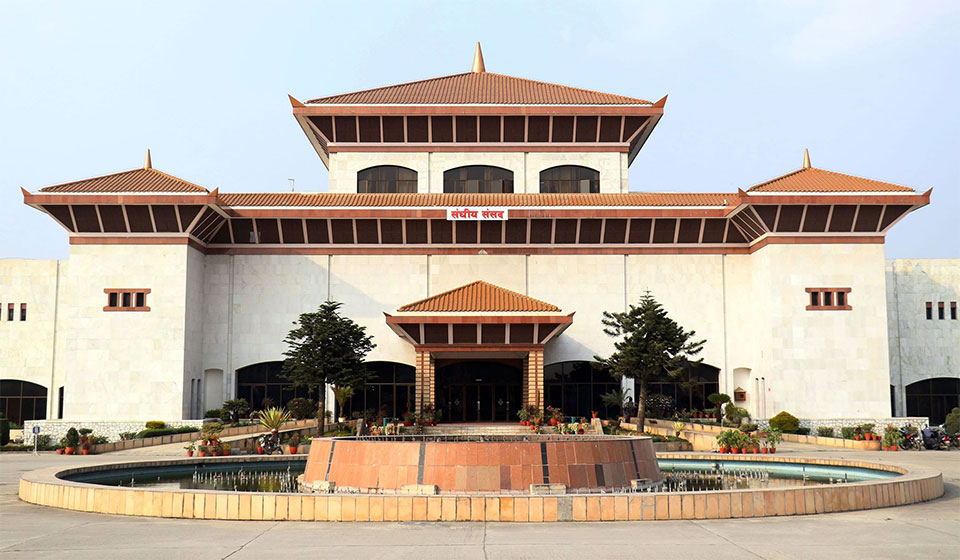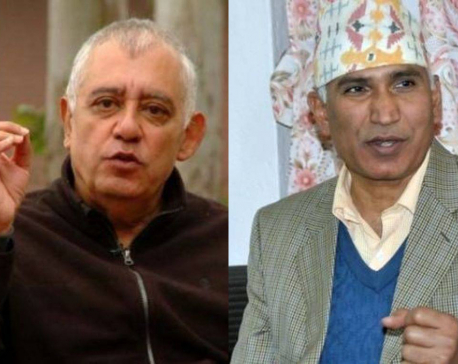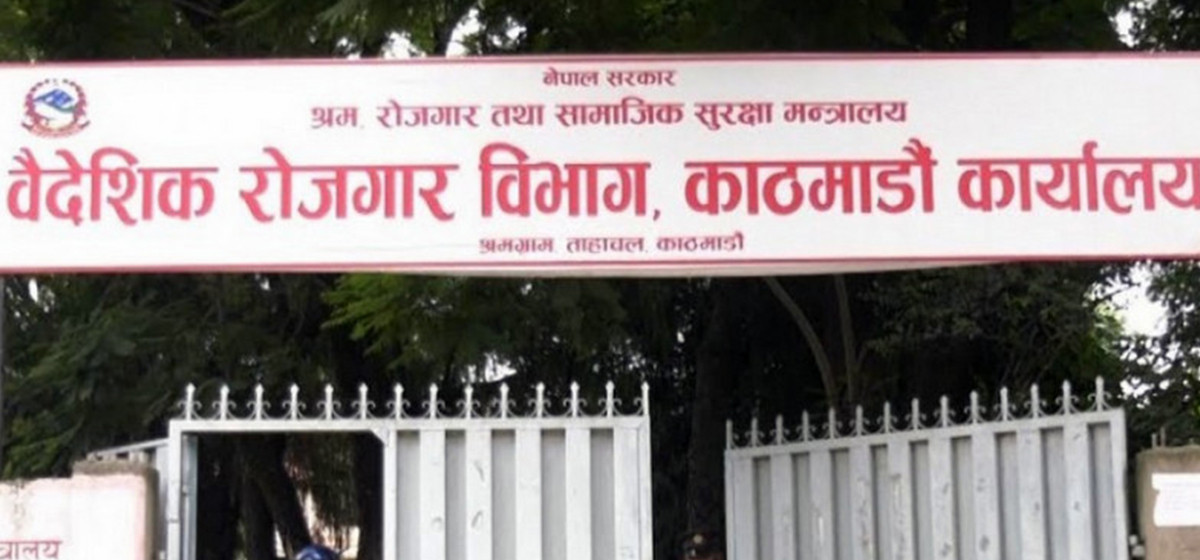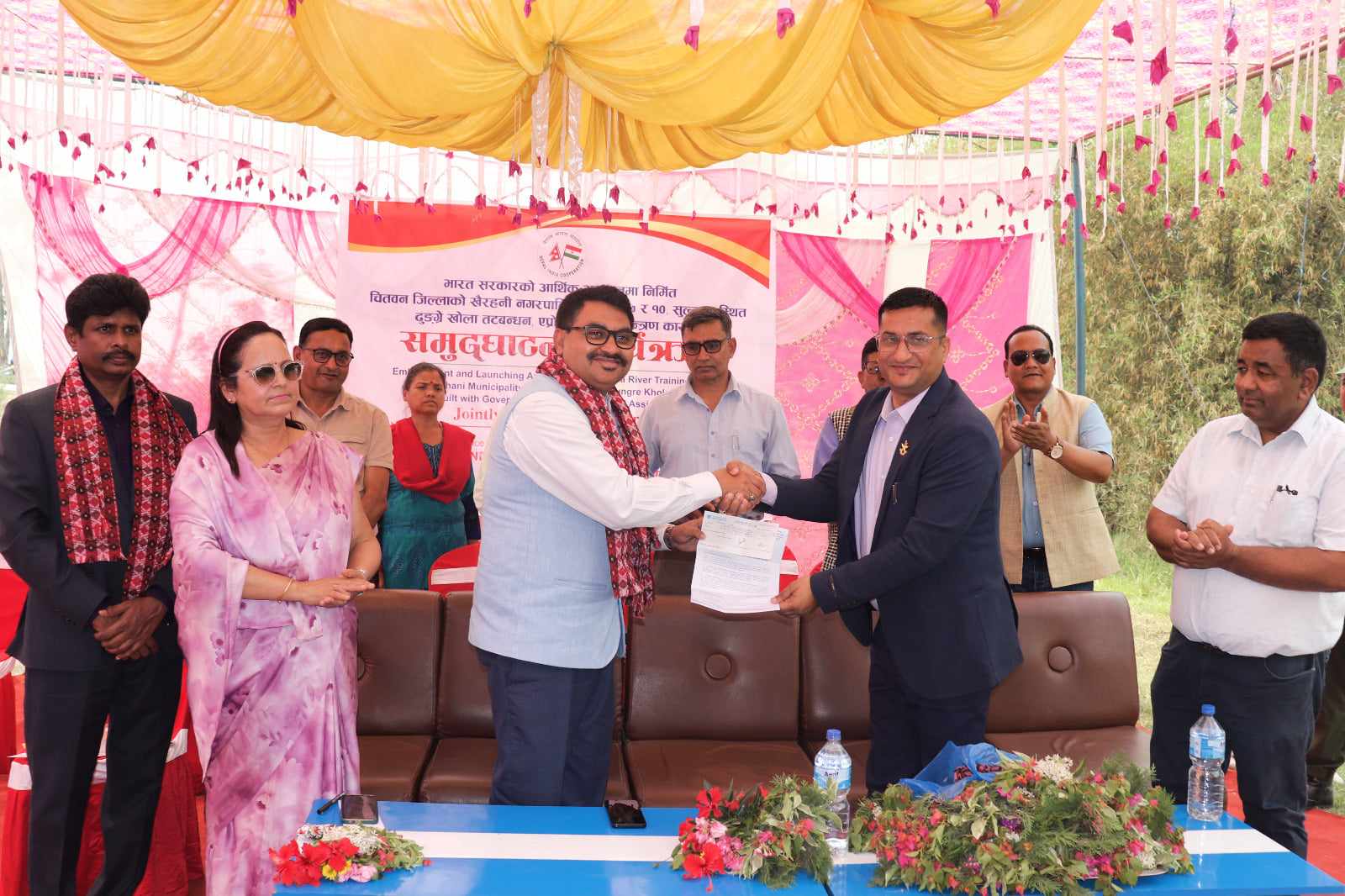
OR
Citizenship bill stalls over naturalization through marriage
Published On: August 28, 2019 06:00 AM NPT By: Republica | @RepublicaNepal

KATHMANDU, Aug 28: Differences among lawmakers and indecision among the top political leadership over whether to require a threshold period for naturalization through marriage has stalled the citizenship bill in parliamentary committee for a year.
The State Affairs Committee (SAC) has failed to endorse the bill as lawmakers of the ruling parties and opposition parties remain divided over the issue of a threshold period for providing such citizenship.
A sub-committee tasked with settling the contentious issues in the Nepal Citizenship Amendment Bill submitted its report after five months on Tuesday without however settling the matter. “We have unanimously settled the issues concerning citizenship-related offenses and sentencing provisions. But differences over acquiring naturalized citizenship after marriage to a Nepali man and whether to deploy mobile teams for distribution of citizenship certificates remain unsettled from our level,” said sub-committee member Laxmi Chaudhary.
A majority of the committee members were for a seven-year threshold for a woman marrying a Nepal man but two members representing the Samajbadi Party and Rastriya Janata Party Nepal (RJPN) and a lawmaker from the main opposition Nepali Congress (NC) were against this provision. They had demanded that citizenship should be provided immediately after the woman initiates the process of relinquishing her previous country citizenship.
“We were close to including a seven-year threshold for Nepali citizenship for a foreign woman marrying a Nepali man but this is not mentioned in the report because we couldn't forge a consensus,” another member of the sub-committee told Republica.
The bill has proposed that any foreign woman marrying a Nepali citizen will get Nepali naturalized citizenship right after initiating the process of renouncing the citizenship of her country of origin.
Sub-committee members have blamed indifference among the leadership of the ruling and opposition parties for the failure to settle the contentious issues. One member informed that sub-committee members didn't get an opportunity to meet top leaders of the ruling and opposition parties and were able to meet only second-rung leaders.
“Although the contentious issues could have been finalized through majority vote we didn't do so because any decision from the sub-committee could be revoked unless it gets the nod of the political leadership,” he added.
Even lawmakers in the sub-committee from the same political parties had differing views. Yashoda Subedi and Jhapat Rawal of NCP had differing stances while Devendra Raj Kandel and Mina Pandey of NC were also divided.
The sub-committee has included provisions relating to offenses and sentencing in its report but most of these were already agreed at the SAC during deliberations there.
You May Like This

Bills relating to industry passed
KATHMANDU, Aug 8: The meeting of the House of Representatives on Thursday passed the 'Safeguard, Anti-Dumping and Countervailing Bill 2076'... Read More...

NC's Koirala asks how Baluwatar land landed in NCP leader's name
KATHMANDU, May 7: Key leaders of both the ruling Nepal Communist Party (NCP) and main opposition Nepali Congress (NC) exchanged arguments... Read More...

Parliament amends poll law to pave way for by-elections
KATHMANDU, March 3 : Parliament amended the election law on Saturday paving the way for conducting by-elections for different positions... Read More...




Just In
- SC rejects writ petition filed against Home Minister Lamichhane
- Nepal and China sign two agreements in the presence of Finance Minister Pun
- Pun released on bail in Supreme Cooperative fraud case
- Govt should not look for enforcing populist budget for next FY: Former finance ministers
- DoFE requests relevant parties to provide essential facilities to foreign workers traveling abroad
- Foundation stone laid for building a school in Darchula with Indian financial assistance
- 151 projects to be showcased for FDI in Third Investment Summit
- Police disclose identity of seven individuals arrested with almost 2 kg gold and more than Rs 10 million in cash















Leave A Comment